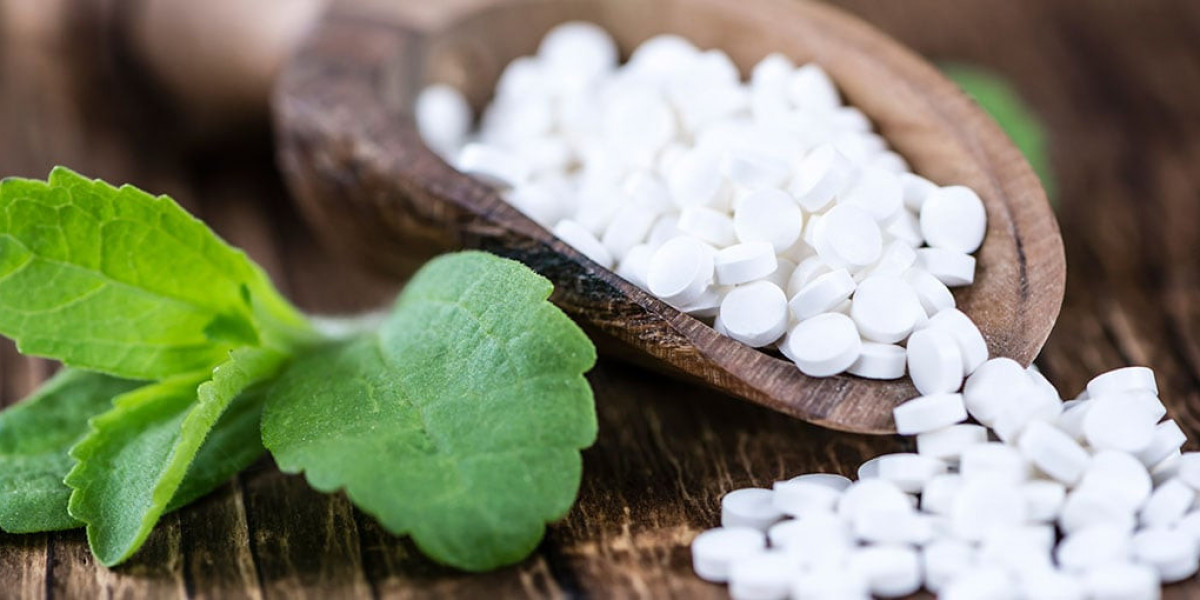Stevia extract has seen substantial growth in recent years, driven by increasing consumer awareness of health and wellness trends. As more people opt for natural alternatives to sugar, stevia extract market is gaining traction in the food, beverage, and pharmaceutical industries. This natural sweetener, derived from the leaves of the Stevia rebaudiana plant, offers several advantages, including being low-calorie, non-glycemic, and sustainable, making it a popular choice among health-conscious consumers.
Market Growth Drivers
The primary driver of the Stevia extract market is the growing demand for natural and organic sweeteners. Consumers are becoming more aware of the negative effects of excessive sugar consumption, such as obesity, diabetes, and heart disease. As a result, they are seeking healthier alternatives to traditional sugar and artificial sweeteners. Stevia extract, with its natural origins and minimal impact on blood sugar levels, has emerged as a preferred solution.
In addition to health considerations, the increasing popularity of plant-based diets is contributing to the market’s expansion. Stevia, being plant-derived, aligns with the values of plant-based and vegan consumers. Its incorporation into various food and beverage products is growing rapidly, with companies using stevia extract to replace sugar in products like sodas, candies, dairy alternatives, and baked goods.
Another key driver is the rising demand for low-calorie and sugar-free products. Stevia extract is not only calorie-free but also a potent sweetener, meaning only small amounts are required to achieve the desired sweetness. This has made it an attractive ingredient for low-calorie snack and beverage manufacturers.
Market Challenges
Despite its growth, the Stevia extract market faces certain challenges. One of the main barriers is the taste profile of stevia. While it is much sweeter than sugar, it often carries a bitter aftertaste that some consumers find off-putting. However, advancements in processing techniques are helping to improve the taste, and many companies are blending stevia with other sweeteners to mitigate this issue.
Additionally, there is still a degree of skepticism surrounding stevia's long-term health effects, especially since it is a relatively new product on the mass market. Regulatory bodies, such as the U.S. Food and Drug Administration (FDA) and the European Food Safety Authority (EFSA), have deemed stevia extract safe for consumption, but some consumers remain cautious. Overcoming this skepticism through education and awareness campaigns will be vital for sustained growth.
Regional Insights
Regionally, the North American market holds a significant share of the Stevia extract market, thanks to growing health-consciousness among consumers and an expanding range of stevia-based products. The United States, in particular, has been a key adopter of stevia as a sugar substitute in various food and beverage categories. The European market is also witnessing substantial growth, driven by increasing demand for natural sweeteners and a focus on reducing sugar intake.
In the Asia-Pacific region, stevia has long been used as a traditional sweetener in countries like Japan and China. In recent years, however, the region has also seen increased interest from global companies, as the awareness of stevia’s health benefits spreads. The region is expected to see significant market growth, especially in emerging markets where the demand for natural sweeteners is rising.
Market Opportunities
The growing adoption of stevia extract in the pharmaceutical and nutraceutical industries presents new growth opportunities. Stevia is being used not only as a sweetener but also for its potential health benefits, including antioxidant and anti-inflammatory properties. Companies are exploring stevia's use in dietary supplements and functional foods designed to improve digestion, heart health, and metabolic function.
Furthermore, the increasing trend of clean-label products is offering a boost to the Stevia extract market. Consumers are demanding products with fewer additives and artificial ingredients, and stevia’s natural origin makes it an appealing choice for clean-label food products.
Conclusion
The Stevia extract market is poised for continued growth, driven by shifting consumer preferences towards healthier, natural alternatives to sugar. Although there are challenges related to taste and consumer perceptions, ongoing innovations and a focus on sustainability position stevia as a key player in the global sweetener market. Companies that can overcome these challenges while leveraging the growing demand for natural, low-calorie, and clean-label products will likely experience significant success in the years to come.









